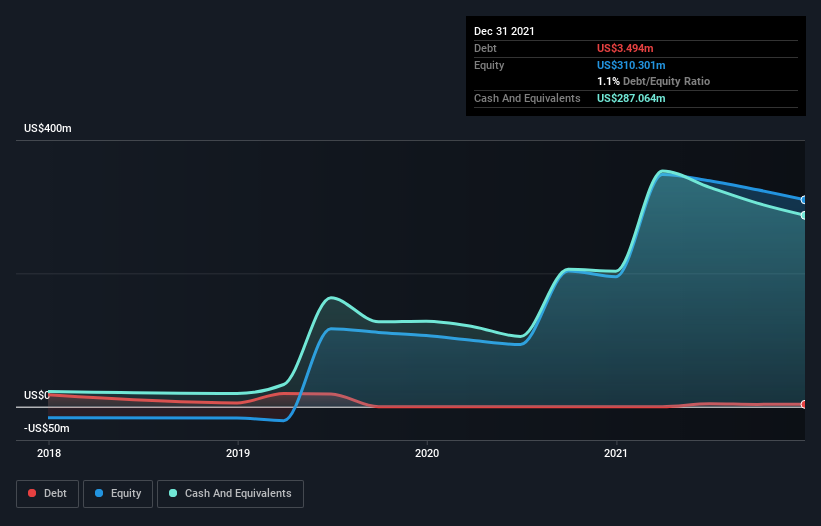Is Personalis (NASDAQ:PSNL) A Risky Investment?
Some say volatility, rather than debt, is the best way to think about risk as an investor, but Warren Buffett famously said that 'Volatility is far from synonymous with risk.' When we think about how risky a company is, we always like to look at its use of debt, since debt overload can lead to ruin. As with many other companies Personalis, Inc. (NASDAQ:PSNL) makes use of debt. But is this debt a concern to shareholders?
When Is Debt A Problem?
Debt is a tool to help businesses grow, but if a business is incapable of paying off its lenders, then it exists at their mercy. Part and parcel of capitalism is the process of 'creative destruction' where failed businesses are mercilessly liquidated by their bankers. However, a more usual (but still expensive) situation is where a company must dilute shareholders at a cheap share price simply to get debt under control. Of course, plenty of companies use debt to fund growth, without any negative consequences. The first step when considering a company's debt levels is to consider its cash and debt together.
Check out our latest analysis for Personalis
What Is Personalis's Net Debt?
As you can see below, at the end of December 2021, Personalis had US$3.49m of debt, up from none a year ago. Click the image for more detail. But on the other hand it also has US$287.1m in cash, leading to a US$283.6m net cash position.
How Healthy Is Personalis' Balance Sheet?
The latest balance sheet data shows that Personalis had liabilities of US$31.3m due within a year, and liabilities of US$54.9m falling due after that. Offsetting these obligations, it had cash of US$287.1m as well as receivables valued at US$18.5m due within 12 months. So it actually has US$219.3m more liquid assets than total liabilities.
This surplus strongly suggests that Personalis has a rock-solid balance sheet (and the debt is of no concern whatsoever). With this in mind one could posit that its balance sheet means the company is able to handle some adversity. Simply put, the fact that Personalis has more cash than debt is arguably a good indication that it can manage its debt safely. When analysing debt levels, the balance sheet is the obvious place to start. But it is future earnings, more than anything, that will determine Personalis's ability to maintain a healthy balance sheet going forward. So if you want to see what the professionals think, you might find this free report on analyst profit forecasts to be interesting.
In the last year Personalis wasn't profitable at an EBIT level, but managed to grow its revenue by 8.7%, to US$85m. That rate of growth is a bit slow for our taste, but it takes all types to make a world.
So How Risky Is Personalis?
We have no doubt that loss making companies are, in general, riskier than profitable ones. And we do note that Personalis had an earnings before interest and tax (EBIT) loss, over the last year. And over the same period it saw negative free cash outflow of US$82m and booked a US$65m accounting loss. But the saving grace is the US$283.6m on the balance sheet. That means it could keep spending at its current rate for more than two years. Overall, its balance sheet doesn't seem overly risky, at the moment, but we're always cautious until we see the positive free cash flow. When analysing debt levels, the balance sheet is the obvious place to start. However, not all investment risk resides within the balance sheet - far from it. For instance, we've identified 5 warning signs for Personalis (1 doesn't sit too well with us) you should be aware of.
At the end of the day, it's often better to focus on companies that are free from net debt. You can access our special list of such companies (all with a track record of profit growth). It's free.
Have feedback on this article? Concerned about the content? Get in touch with us directly. Alternatively, email editorial-team (at) simplywallst.com.
This article by Simply Wall St is general in nature. We provide commentary based on historical data and analyst forecasts only using an unbiased methodology and our articles are not intended to be financial advice. It does not constitute a recommendation to buy or sell any stock, and does not take account of your objectives, or your financial situation. We aim to bring you long-term focused analysis driven by fundamental data. Note that our analysis may not factor in the latest price-sensitive company announcements or qualitative material. Simply Wall St has no position in any stocks mentioned.

